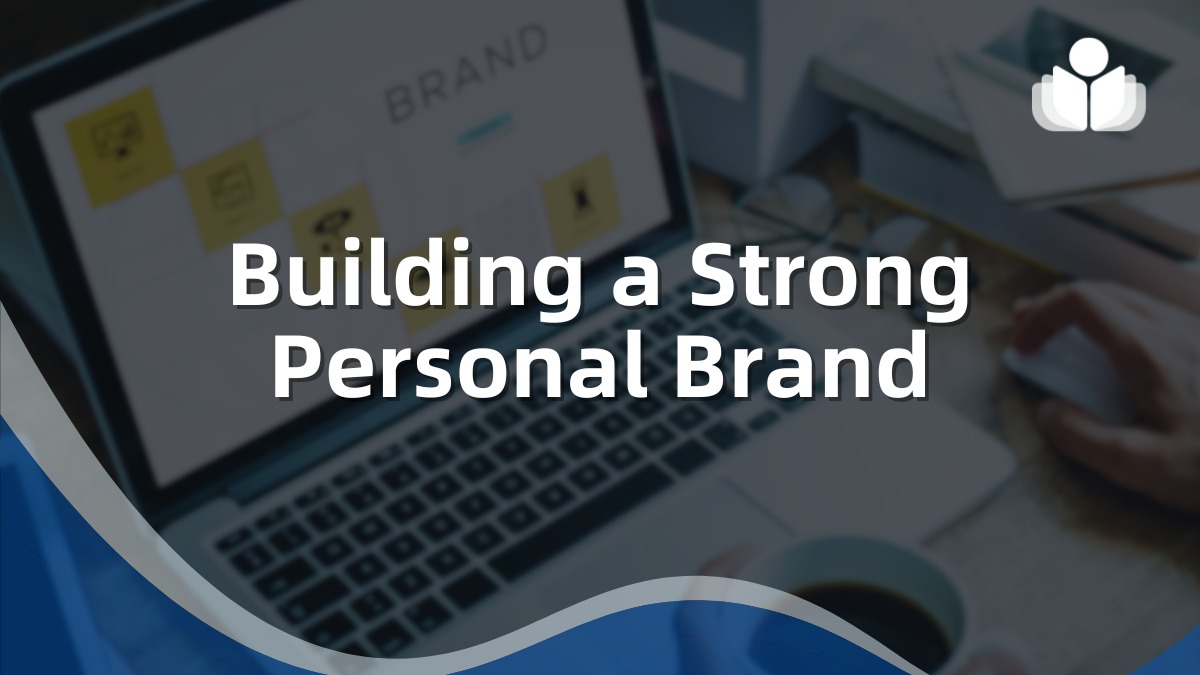Personal branding creates a unique identity and reputation around your skills, values, and expertise. It’s how you present yourself to the world, online and offline. Personal branding is essential in today’s professional landscape as it helps you stand out in competitive markets, gain visibility, and establish credibility.
A solid personal brand can differentiate you from others, open doors to new career opportunities, and build trust with employers, clients, and peers. This article will provide actionable steps on how to define, promote, and maintain a powerful personal brand to achieve long-term success.
Understanding Personal Branding
A personal brand is the image and identity you project to the world, encompassing your values, skills, experiences, and how others perceive you. It’s a combination of who you are and how you communicate your unique value to the world, both personally and professionally. Building a personal brand is about creating a clear, consistent narrative that reflects your expertise, personality, and what you stand for.
Personal branding goes beyond the job title. It’s about defining your role in your industry or community and how you can solve problems or bring value to others. It helps you control your reputation and shape how people, such as employers, clients, or peers, see you.
Why a Strong Personal Brand Matters
A strong personal brand is crucial because it directly affects your career growth, networking potential, and business opportunities. Here’s why:
- Career Growth: A well-defined brand sets you apart from your competition and highlights your unique skills and strengths. It can help you land job opportunities, promotions, and leadership roles because people recognize your value and expertise.
- Networking: Your brand creates an identity that resonates with others, helping you build meaningful professional relationships. It increases your visibility in your industry, making it easier for others to find and connect with you.
- Business Opportunities: Whether you’re an entrepreneur, freelancer, or working professional, a personal brand is essential for attracting clients, partners, or collaborators. A strong brand establishes trust and credibility, which is key to business success.
Importance for Entrepreneurs, Freelancers, and Professionals
- Entrepreneurs: Your personal brand is often linked to your business’s success. Customers and investors are more likely to support a business led by someone they trust, know, or admire.
- Freelancers: Your brand is your business. It communicates your expertise and differentiates you from other freelancers. A solid brand can attract more clients and command higher rates.
- Professionals: In highly competitive industries, a strong personal brand can be the differentiating factor that helps you secure new roles, gain recognition, or move up the career ladder.
Self-Reflection
Before you can build a personal brand, you need to understand who you are and what you want to represent. Ask yourself key questions to define your brand:
- What are my core strengths and skills?
- What am I passionate about in my career or business?
- What values do I stand for, both professionally and personally?
- How do I want to be perceived by my peers, clients, and employers?
- What kind of problems do I solve, and for whom?
- What makes me unique compared to others in my field?
Reflecting on these questions helps you uncover the essence of your personal brand and ensures that you create an authentic and intentional narrative around who you are and what you offer.
Defining Your Personal Brand
Identify Your Unique Value Proposition (UVP)
Start by clarifying what makes you stand out. Identify your core skills, values, and passions that set you apart from others. Think about what you do best and what you’re passionate about. This will help you understand your unique value. To find your niche, focus on areas where your strengths align with market needs, and identify how you can serve your target audience in a way others can’t.
Set Clear Personal Branding Goals
Define both short- and long-term goals for your personal brand. In the short term, you might aim to increase your online presence or improve your networking skills. For the long term, you could aim to become a recognized thought leader in your field or attract specific job opportunities. Clear objectives keep your personal brand focused and help track your progress.
Crafting Your Personal Brand Message
Define Your Core Message
Your core message is the foundation of your personal brand. It should be a concise and compelling statement that clearly defines who you are, what you offer, and why you’re unique. Focus on your strengths, expertise, and values, ensuring that it aligns with your personal and professional goals.
Storytelling
Use storytelling to create an emotional connection with your audience. Share key moments from your career or personal life that reflect your journey, challenges, and achievements. This helps humanize your brand and makes it more relatable, fostering trust and engagement.
Authenticity and Consistency
Be authentic in your messaging, your brand should reflect who you truly are. Consistency across platforms and communications reinforces your brand identity and helps you stay memorable.
Aligning With Your Audience
Know your target audience and ensure your message resonates with their needs, challenges, and goals. Tailor your communication to address how you can add value to their lives, making your brand relevant and impactful.
Building Your Online Presence
Create a Professional Website or Portfolio
Having a personal website or online portfolio is crucial for showcasing your expertise, achievements, and work. It serves as your digital resume, allowing potential employers, clients, or collaborators to access your skills and background. A professional website builds credibility and makes a strong first impression.
Leverage Social Media
Use platforms like LinkedIn, Twitter, Instagram, or YouTube to promote your personal brand. Tailor your content to fit each platform’s audience, sharing industry insights, achievements, or thought leadership. Engage actively by responding to comments, sharing relevant posts, and building meaningful connections.
Optimize for SEO
To make sure you’re discoverable online, incorporate relevant keywords related to your field into your website, blogs, and social media profiles. Consistently create content that aligns with your personal brand, and use SEO strategies such as backlinking and optimizing metadata to improve your search engine rankings.
Networking and Building Relationships
Expand Your Network
Networking is crucial for building your personal brand and establishing credibility. Attend industry events, both in-person and virtual, to meet like-minded professionals. Engage in online communities, such as LinkedIn groups or industry-specific forums, to share insights and build meaningful connections that can open new opportunities.
Collaborate With Others
Partnering with influencers, colleagues, or mentors helps broaden your audience and boost your visibility. Collaborating on projects or creating content together can enhance your brand’s reach and reputation.
Get Involved in Public Speaking or Writing
Contributing to blogs, speaking at conferences, or launching a podcast can position you as a thought leader. Sharing your expertise through these platforms helps build authority and trust within your industry.
Maintaining and Evolving Your Brand
- Consistency is Key: To build trust, ensure your brand message, tone, and visuals are consistent across all platforms, from social media to email. Whether you’re posting on LinkedIn, writing a blog, or attending an event, your personal brand should reflect the same professionalism and integrity. Consistency reinforces your expertise and keeps your audience engaged.
- Continuous Learning and Adapting: As industries and trends change, so should your personal brand. Regularly assess your brand’s performance and adjust to stay relevant. This may include gaining new skills, exploring emerging trends, or refining your message to match evolving goals. Staying adaptable ensures your brand remains fresh and competitive.
Measuring Your Personal Brand Success
- Track Your Impact: Monitor your online presence using tools like social media analytics (LinkedIn, Twitter Insights) and Google Analytics. Track metrics such as follower growth, engagement rates, and website traffic to gauge how your personal brand is resonating with your audience.
- Seek Feedback: Ask peers, mentors, and your audience for constructive feedback on your personal brand. Their insights can help you identify areas for improvement and refine your messaging or online presence.
- Achieving Your Branding Goals: Regularly evaluate whether you’re meeting your branding objectives. Adjust your strategy based on feedback and performance metrics to align with your goals.
Conclusion
Building a strong personal brand is essential for standing out in today’s competitive professional landscape. It allows you to showcase your unique value, establish trust, and open doors to new opportunities to impact your career and personal growth positively. Defining your brand and promoting it consistently can create lasting connections and elevate your professional presence.
Reflect on your strengths and goals, then take actionable steps to craft your message and build your online presence. Remember, authenticity and consistency are key. Commit to evolving and growing your personal brand over time.
 Sections of this topic
Sections of this topic
















